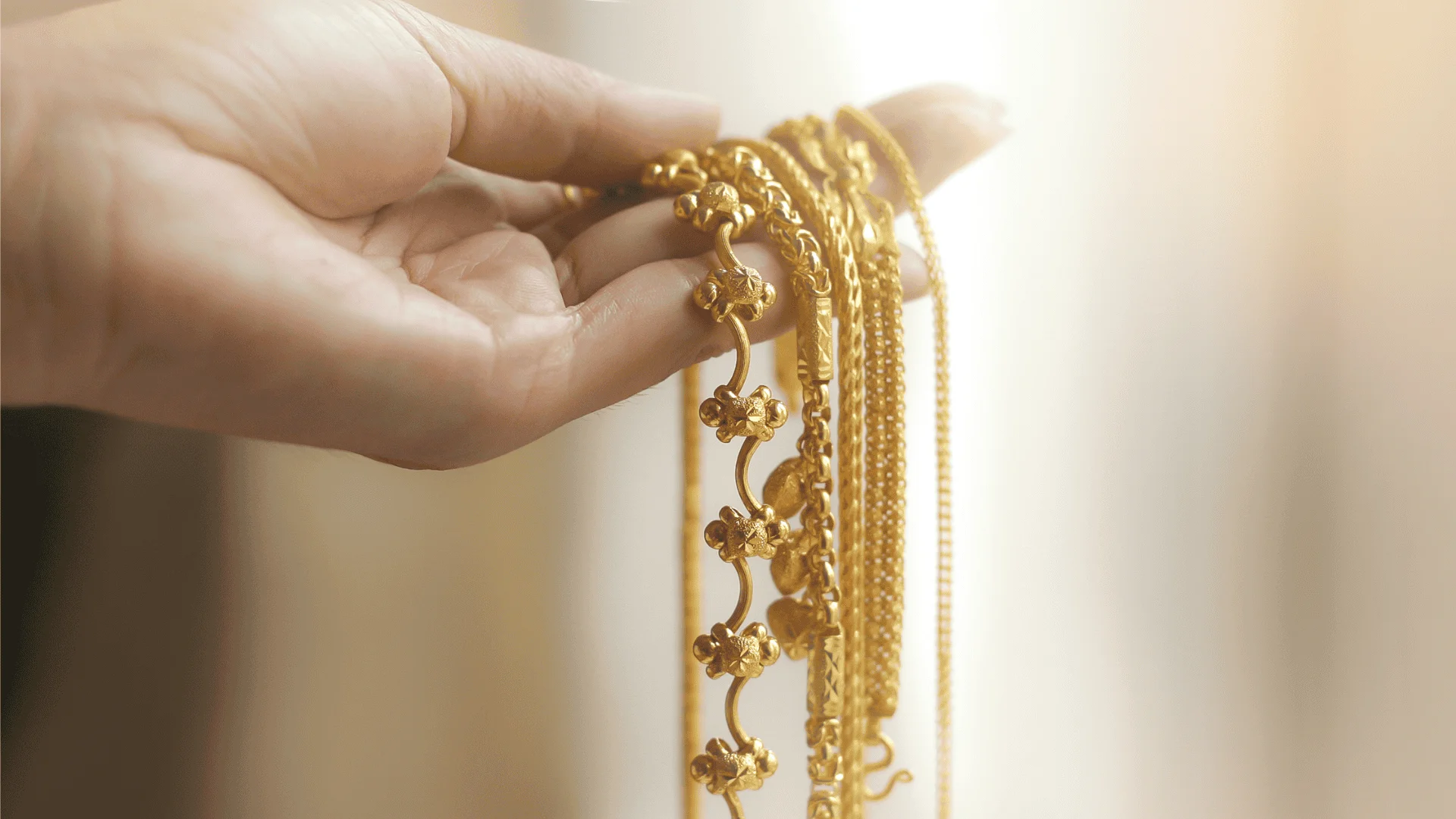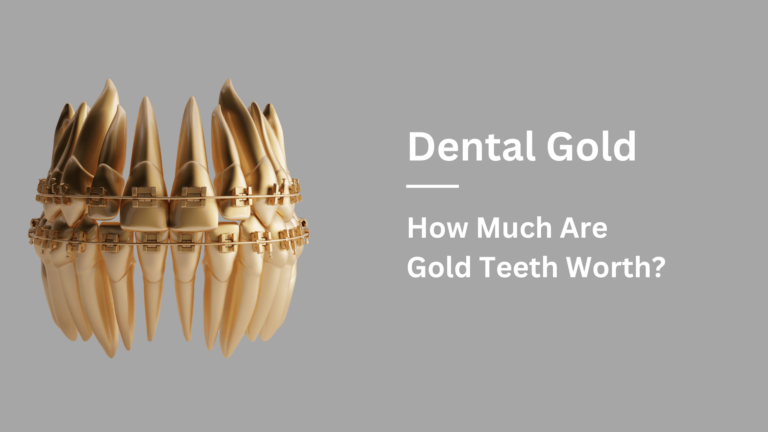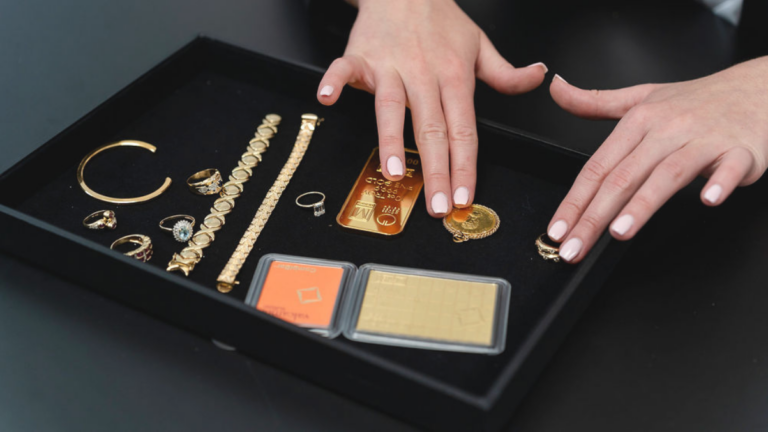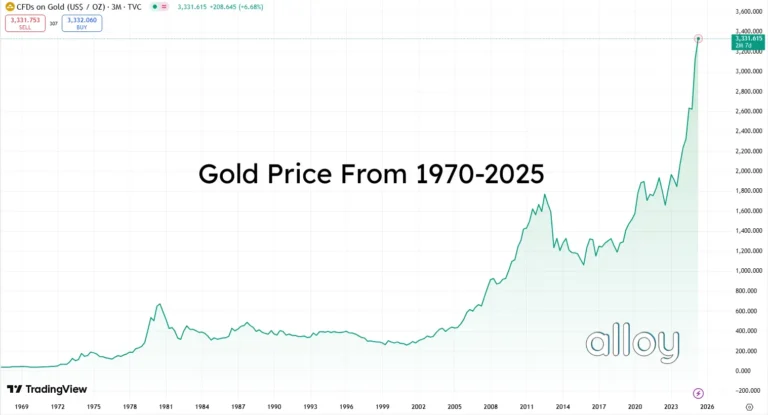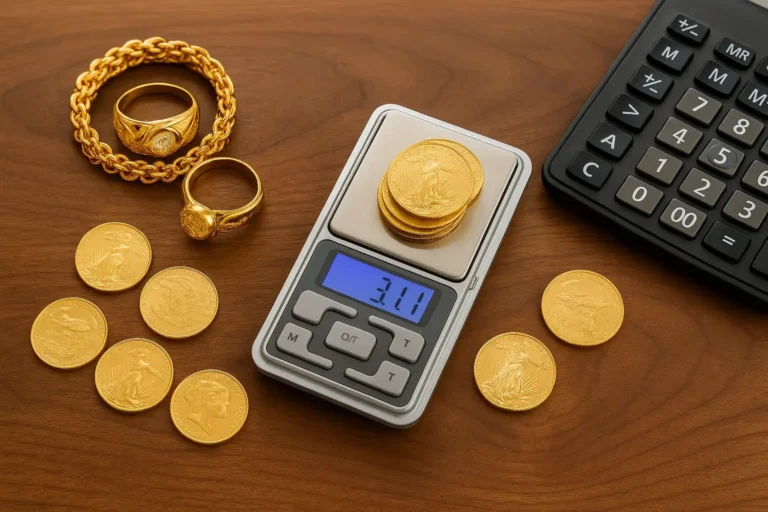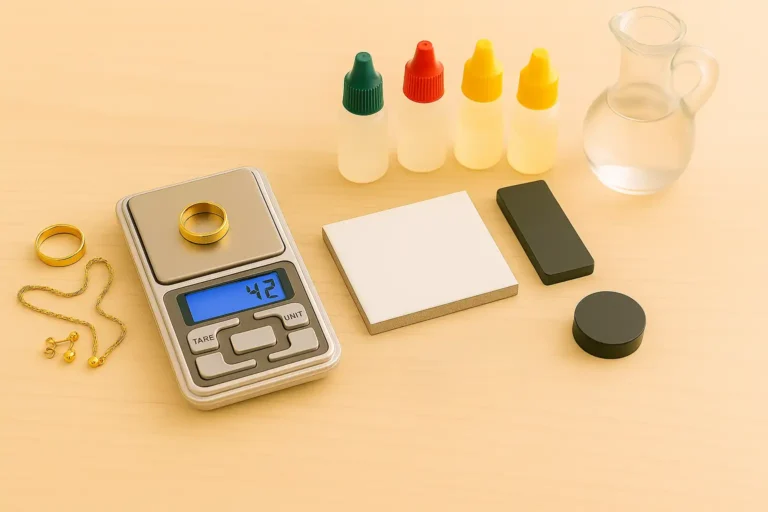Is It Better to Pawn or Sell Gold?

Any gold enthusiast knows that prices in 2025 have reached record highs in the US. After hitting an all-time high of over $3,700/ounce and a consistent price hovering above $3,500, gold jewelry, coins, and bullion are now worth more than ever. It makes sense that those with gold want to capitalize on this price surge. But is it better to pawn or sell gold? This article will discuss which option is best to maximize the potential cash return.
In a nutshell:
Pawn shops typically offer two services: pawning or selling. When an item is pawned, it serves as collateral, and the pawn shop lends the seller a sum based on the item’s value. The seller can come back and claim their item when they have paid the load and any incurred fees. When a pawn shop buys an item, it assesses its value and buys it outright, completing the transaction. Before deciding, it’s important to understand the process and typical payouts expected at a pawn shop.
Differences Between Selling and Pawning Gold

Selling or pawning gold can both provide someone with cash, but which is best?
How selling gold works

If the goal is to exchange a gold item for money, selling is the best option.
Selling involves bringing a gold item to a buyer, such as an online marketplace, jewelry store, or coin dealer. That buyer will then verify its purity (karat) and weight. Using this information, along with the current market price, the buyer will make an offer. If the seller agrees to the price, they sell their gold and receive payment.
Once sold, the gold no longer belongs to the seller. Since all payments are final, this type of transaction is best suited for individuals who want a higher payout and don’t plan to reclaim the item.
How pawning gold works
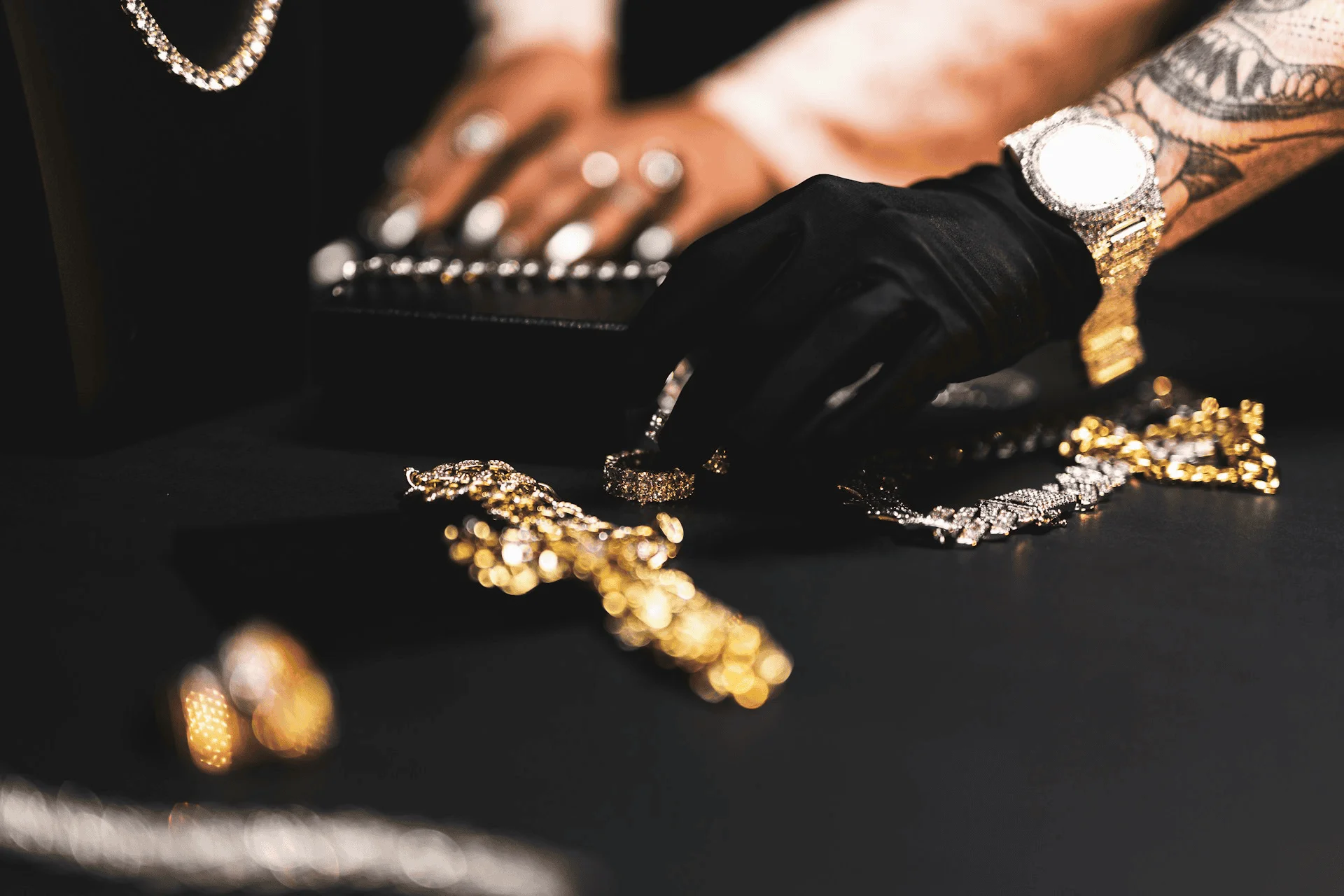
But what if someone wants to keep their gold? Pawning, although not always worthwhile, can provide this option.
Pawning works by using gold as collateral for a short-term loan. A pawnbroker appraises the item and will lend anywhere from 25% to 60% of its value. The person pawning will receive cash and a pawn ticket outlining repayment terms. If they repay on time, plus interest, they get their gold back; if not, the shop keeps it to resell and recoup the loan amount.
Pawn loans have incredibly high interest rates (sometimes as high as 20-25% per month). While pawning can provide quick cash without relinquishing ownership, it’s significantly more expensive than selling outright.
What to Consider When Deciding to Sell or Pawn Gold

A person looking to pawn usually has two key factors to consider. Do they urgently need cash? Do they want to keep their gold item? Whether a person sells or pawns their gold will depend on their level of urgency and circumstances.
Immediate cash need

Someone with gold who needs cash now is in luck. Both pawning and selling can provide fast cash.
Selling gold provides a person with a lump sum of cash immediately, with no strings attached. Once they walk out, that money is theirs to use, and they have no further obligation. So if they want to liquidate the asset and be done, selling is the best option.
Pawning gold also provides quick cash, but it’s essential to understand that it’s a form of loan. A loan requires a person to follow specific repayment requirements. If someone is confident they can repay in a short period, pawning can bridge a temporary cash crunch. It allows them to keep ownership of their gold in the long run.
Value and financial outcome

Selling gold yields a higher amount of money than pawning it.
When selling gold, a buyer’s offer will be relatively close to the gold’s market value, minus their commission.
A pawnbroker will lend much less than the item’s full value. This payout percentage is referred to as the loan-to-value (LTV) ratio, and it typically ranges from ~25% to 60% of the gold’s worth. Plus, pawn loans charge exceptionally high interest rates. By the time someone has repaid the loan and fees, they will have ended up paying significantly more than they initially received.
A report by Kiplinger shows that pawn shops may pay as little as 20% of an item’s value for gold jewelry. Conversely, dedicated gold buyers, including reputable online services, may pay anywhere from 65% to 88% in a direct sale.
From a purely dollar standpoint, selling will maximize a person’s financial return.
Ownership and sentimental value

Selling gold is permanent. If someone sells their grandmother’s necklace, they won’t be able to get it back. That’s why someone shouldn’t sell anything you have an emotional attachment to (because they might regret it later).
Pawning can provide cash without requiring someone to part with their gold item permanently. They retain legal ownership of the gold during the loan period, and it is returned to them upon repayment of the loan.
Risk and security
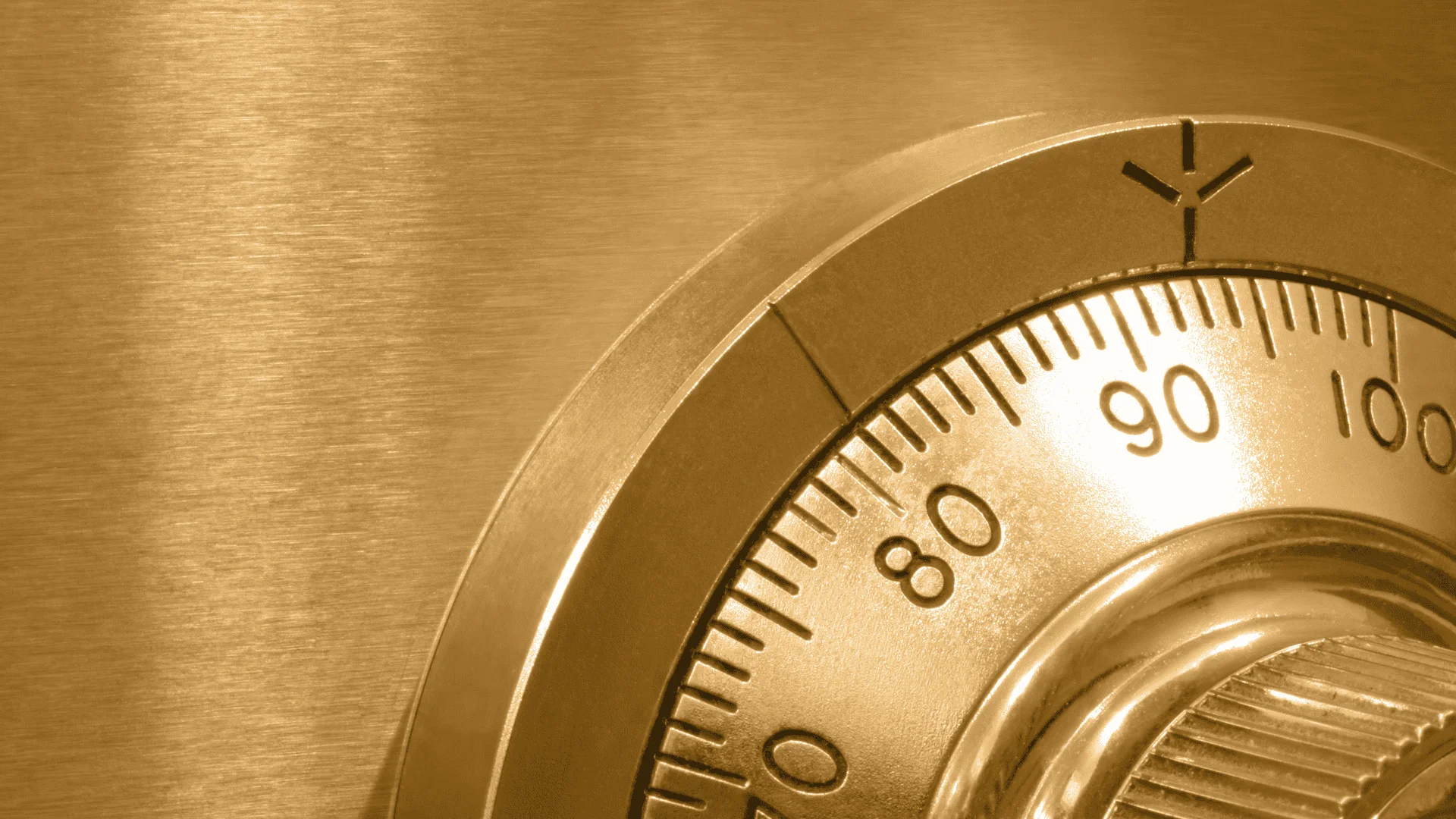
Pawning gold involves the risk that the item could be lost if the loan is not repaid on time. A person might intend to repay, but if life gets in the way and they default on the loan, the gold is gone. Not to mention, when gold is pawned, it is out of their hands, literally. They need to trust it’s in safe hands.
Reputable pawn shops securely store collateral during the loan period; however, there’s always a slight risk associated with handing valuables to someone else. There’s also the financial risk of high interest if someone rolls over or extends a pawn loan, and fees accumulate, making it very difficult to come out ahead.
Selling gold avoids the risk of default. Since it’s a one-time transaction, a person can’t “lose” an item they’ve sold. They gave it up by choice. The primary risk in selling is ensuring that you deal with an honest and reliable buyer.
Sadly, there are scammers out there and unscrupulous buyers who might lowball or even disappear with mailed-in gold. It’s in a person’s best interest to do business with buyers who have a solid reputation.
Gold prices
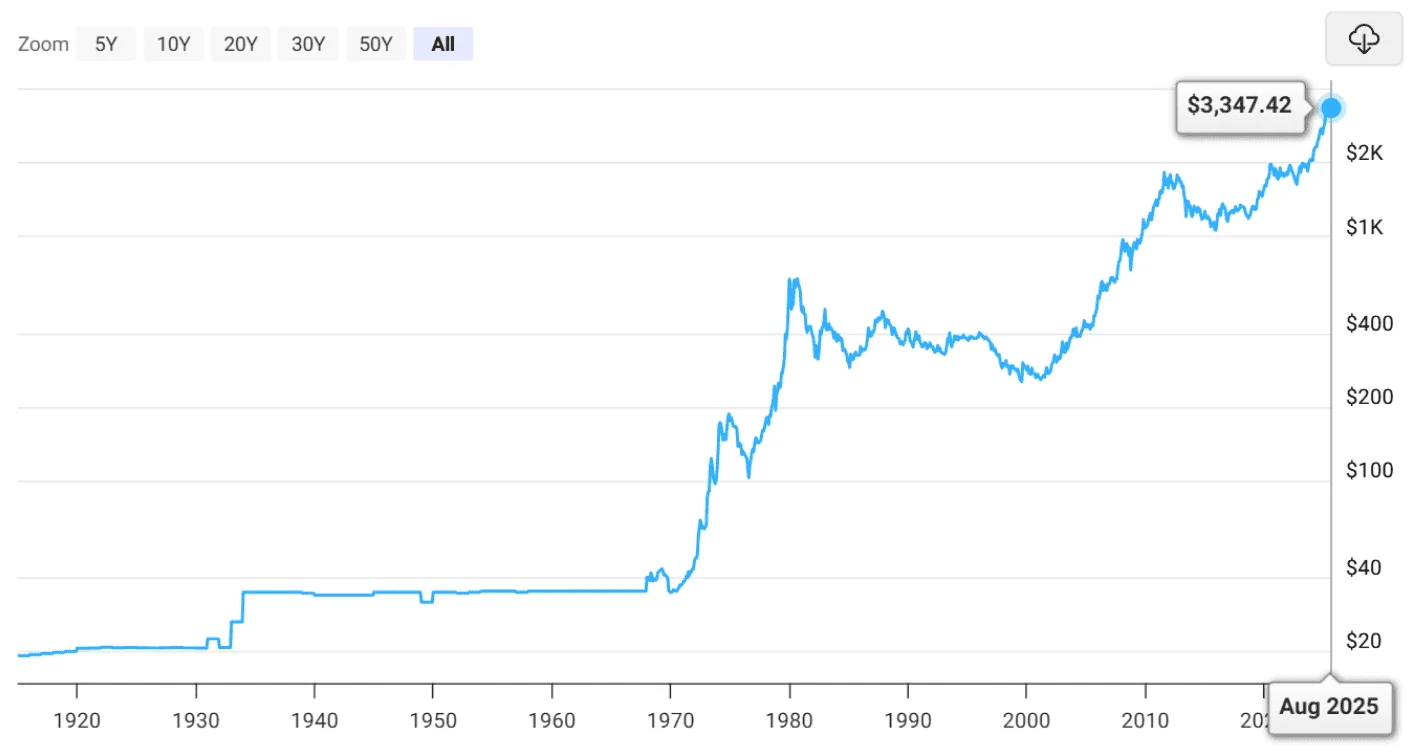
Gold fluctuates daily, and in 2025, it reached historic highs.
When planning to sell, a high gold price environment is obviously favorable because sellers will get more cash for the same amount of gold.
High gold prices also increase the amount a pawn shop will lend since the collateral is worth more. But while gold being worth a lot means more cash in hand, no one is getting anywhere near 100% of its value.
Where to Sell or Pawn Gold

Pawn or sell; it doesn’t matter which option someone chooses. There are several places available to them.
Jewelry stores
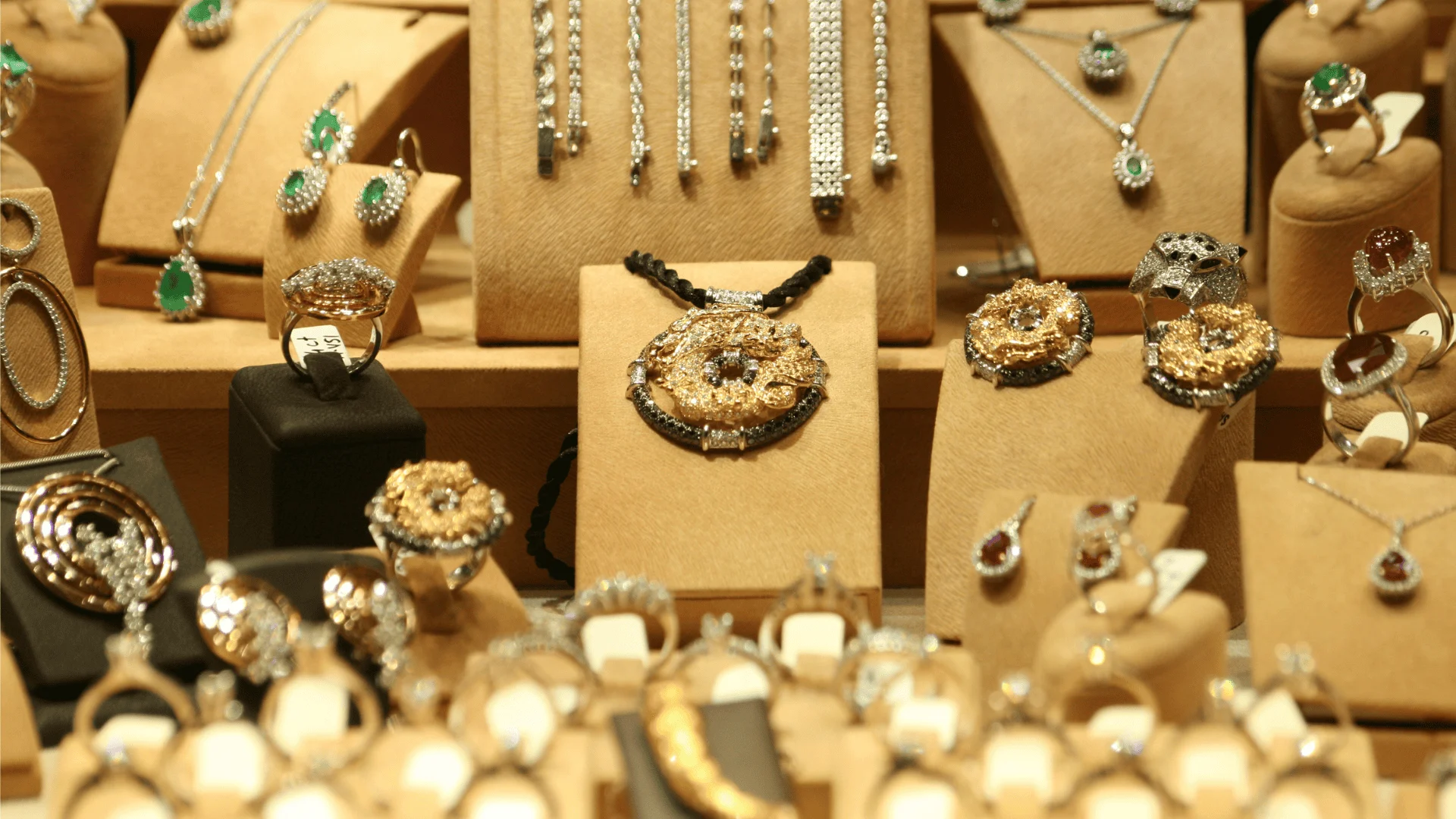
Though it’s not always their primary business, many local jewelry stores will buy gold, especially gold jewelry. While they are generally in the business of selling new jewelry, they do buy gold from the public either to stock estate pieces or to send off for refining.
If someone has a nice piece of jewelry, a jeweler might pay a bit more than a pawn shop would. A higher payout is possible, especially if the item is resalable in their display case. But jewelry stores often can’t offer the very best prices either. They have high overhead costs and will not pay above the scrap melt value unless the piece is something they know they can flip for a profit.
Local pawn shops

Pawn shops are prevalent throughout the US, and they are almost always willing to either buy gold outright or offer a pawn loan for it.
Their most significant advantage is speed and simplicity. Someone can walk in with a gold item and walk out with money in minutes. A pawn shop’s biggest flaw is its low payouts and high interest rates. Their business model involves buying items at a low cost (or lending conservatively) and later selling them for a higher price.
Pawn shops are considered a “last resort” for selling gold if maximizing money is the goal.
Online marketplaces

Online marketplaces have become popular places to sell gold, primarily due to their transparency and convenience, eliminating the need to visit a physical store.
Alloy is a huge online gold marketplace where you can securely sell your gold items from the comfort of your own home. Online services like this often let you request a free appraisal kit. Alloy will send you a prepaid, insured mailer to pack your gold jewelry or coins. Once they receive it, their experts will evaluate your items and make you an offer on the same day. If you accept, you get paid, and if not, they send your items back.

Alloy buys gold!
Request a free Alloy Appraisal Kit, ship from home, and receive a same-day offer after appraisal.

Alloy buys gold!
Request a free Alloy Appraisal Kit, ship from home, and receive a same-day offer after appraisal.
Online buyers also tend to have significantly lower overhead costs, which translates to higher payout rates for you. Alloy advertises that it pays customers on average more than 80% of the current gold price, which is a significantly higher percentage compared to typical pawn shops or “cash for gold” kiosks.
In addition to ease and convenience, these platforms often provide their users with free resources that enhance transparency, such as live gold price charts and calculators, enabling you to estimate the value of your item in advance.
In terms of getting a reasonable price with minimal effort, online marketplaces are hard to beat.
How to Maximize Your Gold’s Value
No matter how or where someone decides to convert gold to cash, they’ll want to squeeze the most value out of their items. Here’s how.
Clean your gold

First impressions matter, even with gold. That’s why a seller should clean their gold items before taking them to a buyer.
A simple way to clean a gold item is to soak it in lukewarm water with a small amount of mild dish soap, then gently scrub with a soft toothbrush or a soft cloth. This can remove grime and skin oils, letting the gold really shine.
Understand your gold’s purity
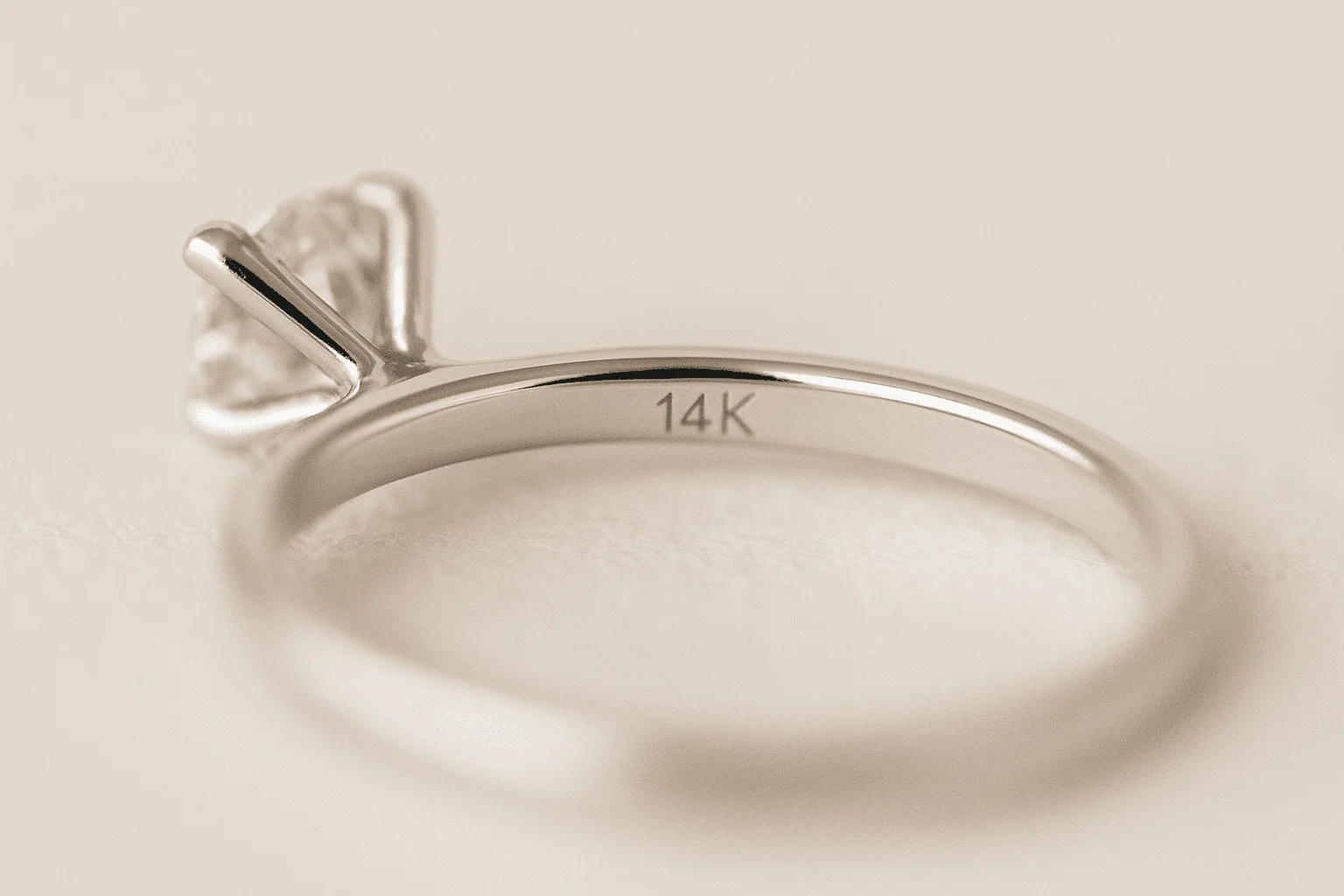
It’s essential to know a piece’s gold purity and weight before selling, as this will directly affect its value. Jewelry in the US is commonly made from 10K, 14K, 18K, or 22K gold. Buyers will pay only for the pure gold content, not the total weight of the item. So check hallmarks stamped on gold pieces, weigh them, and compare them to the day’s spot price.
Researching the value of a gold item helps gauge lowball offers and negotiate for better prices.
Compare offers

One of the best ways to maximize a payout is to shop around and compare prices. Don’t feel obligated to take the first offer you get. Different buyers will provide different quotes, and in this industry, the quotes can sometimes vary dramatically.
Obtain offers from a local pawn shop, a jeweler, and an online gold buyer or marketplace. The pawn shop’s offer is likely the lowest, and the online buyer might be the highest, with the jeweler somewhere in between, but comparison is the only way to know.
The process of obtaining quotes is generally free and doesn’t obligate anyone to anything.
Is it Better to Pawn or Sell Gold
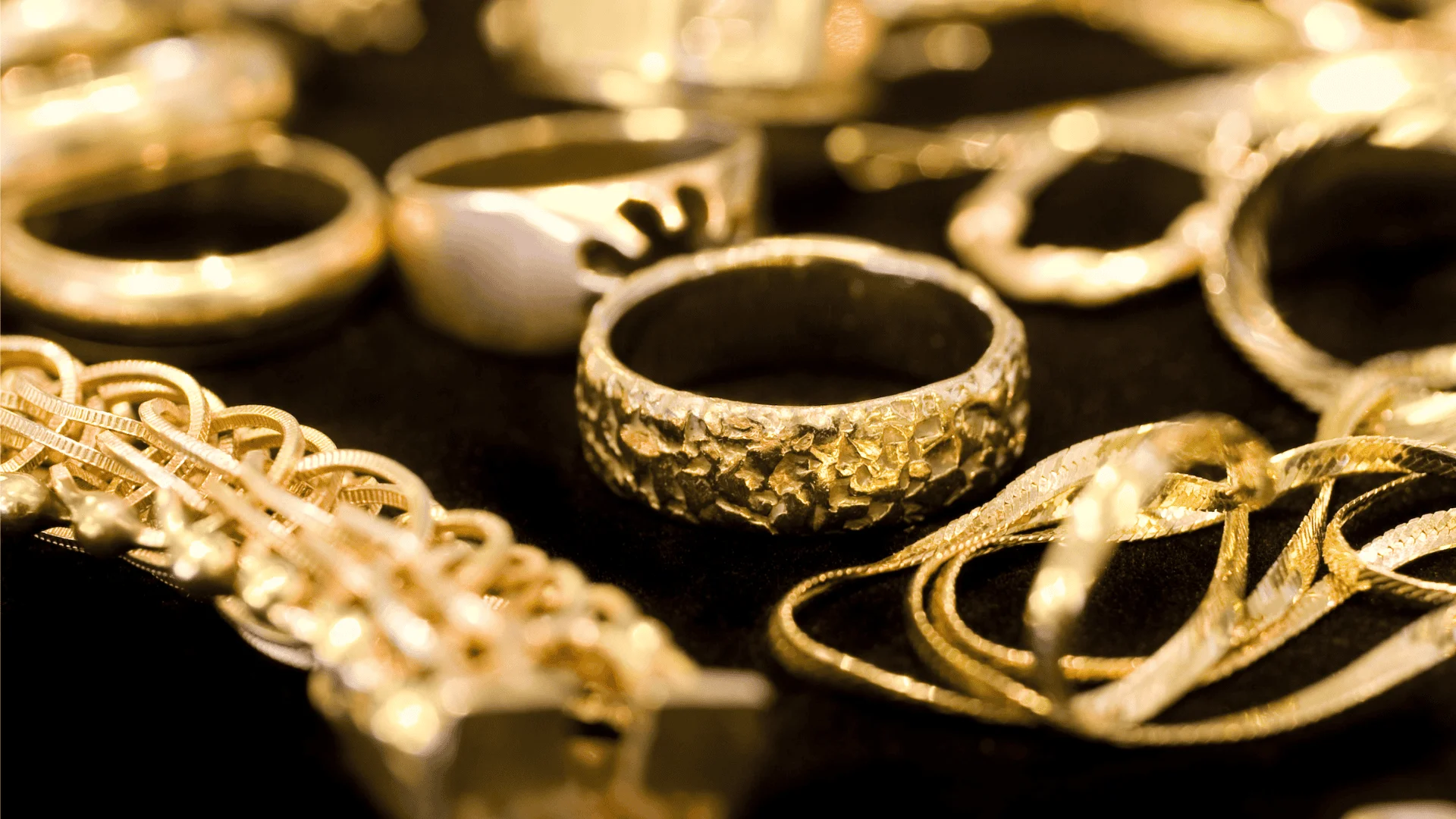
So, is it better to pawn or sell gold? Both options can turn gold into cash. There are numerous places eager to buy or lend against it; however, each serves different needs.
For someone who needs cash quickly and wants the highest payout with no future obligations, selling their gold is generally the better option.
If a gold item has sentimental value and someone believes they can repay a short-term loan, pawning is the better choice. This is only true as long as they understand how predatory the loan terms and interest rates are.
In the end, the “better” option depends on what someone values more: money or the metal (aka, keeping the gold item). For purely maximizing dollars, selling is the best option. For flexibility and the ability to hold onto cherished items, pawning is the best option.
Sell Your Gold with Alloy
Alloy is the premium destination for selling your gold. We provide a free and secure process from start to finish, with complete transparency throughout.
Simply request a free Appraisal Kit to get started. We’ll ship it to your door right away. Use the free, postage-paid parcel to pack up your items and ship them directly to us through FedEx. We’ll cover the insurance and tracking.
Once your items arrive, our team will assess the value of your gold and send you an offer. When you accept, we initiate payment the same day. Alloy offers the highest payouts, guaranteed.

